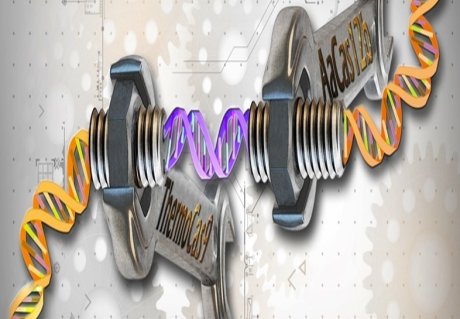
CRISPR-Cas Biology & Engineering
Bacteria and archaea are constantly exposed to a diversity of mobile genetic elements, such as viral DNA and (conjugative) plasmids.
This incoming genetic material has a major impact on the evolution of these microorganisms, for example by introducing new metabolic pathways and antibiotic resistance, thereby affecting their fitness. For this reason, prokaryotes employ different strategies to control the delicate balance between DNA uptake and rejection. One of these strategies involves the adaptive immune system CRISPR-Cas. Advances in our understanding of these systems have triggered a revival in genomic engineering. Several CRISPR-Cas systems have been studied in recent years, but there are still many systems that remain completely uncharacterized. We aim to characterise the interesting biology behind these systems and to repurpose them for new applications.

